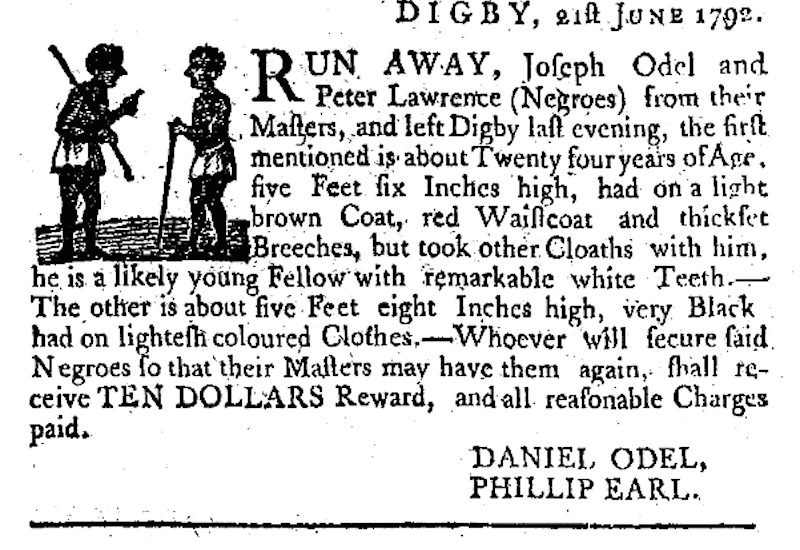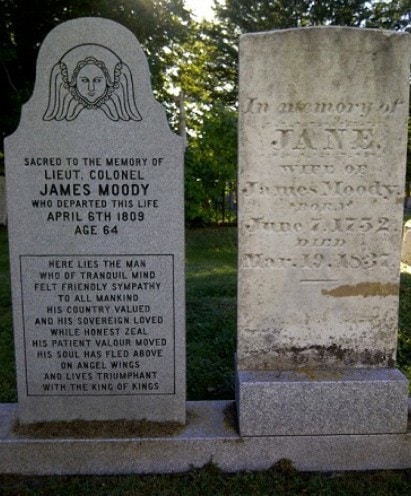
KJIPUKTUK (Halifax) – “Why did someone steal this portrait from a rural Nova Scotia church?” asks a CBC headline.
It’s a story about James Moody, a Loyalist who arrived in Nova Scotia in 1876 and settled near Digby.
For generations his portrait was on display in a local church, until it was stolen some 40 years ago, and nobody knows who did it. Now somebody wants to make a documentary about it. That’s the story.
James Moody was a shipbuilder, provincial politician, military officer and farmer, and died in 1809 at the age of 64, the CBC informs us.

There’s more to the story however, but you won’t find it in the CBC article.
Moody was also one of the largest slaveholders in the Weymouth area. Many Loyalists who fled here after the American Revolution owned slaves. At one time Moody owned as many as eight – two males, one woman, and five children.
That’s more than most. Slavery in Nova Scotia, especially after the arrival of Loyalists, was widespread and by no means limited to the very rich, but most household owned fewer enslaved Blacks.
Together with other slaveholders in the area Moody petitioned the government in Halifax in 1807, complaining about emboldened enslaved Blacks no longer staying put, and requesting compensation if and when the practice of owning humans is outlawed.
“These slaveholders should be seen as unusually devoted to the continuation of the institution, as slavery had started to die out in other communities because of judicial decisions,” writes historian Harvey Amani Whitfield, author of the excellent North to Bondage, Loyalist slavery in the Maritimes.
Relationships between owners and enslaved Blacks, living in close quarters, was more intimate than on large plantations in the South, but that does not mean that lives in the Maritimes were better for enslaved Blacks.
Black women were often subjected to terrible sexual abuse, many enslaved Blacks were cruelly beaten, and families were routinely broken up and even very young children were sold as if they were mere commodities.
I don’t write this story to vilify the CBC reporter, or James Moody for that matter.
What the CBC story shows once again is that slavery is not something we white people like to talk about. We sort of forget it ever occurred.
That’s what I am taking issue with.
The deep roots of anti-Black racism in these parts begin with this history of slavery, when Black human beings were not considered human, and perfectly fit to be sold as property.
Slavery is a legacy white Nova Scotians need to come to terms with if we ever want to eradicate racism.
See also: Slavery is a crime against humanity, and there will be no impunity, Halifax audience told
With a special thanks to our generous donors who make publication of the Nova Scotia Advocate possible.
Subscribe to the Nova Scotia Advocate weekly digest and never miss an article again. It’s free!



